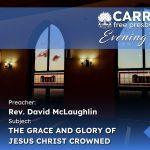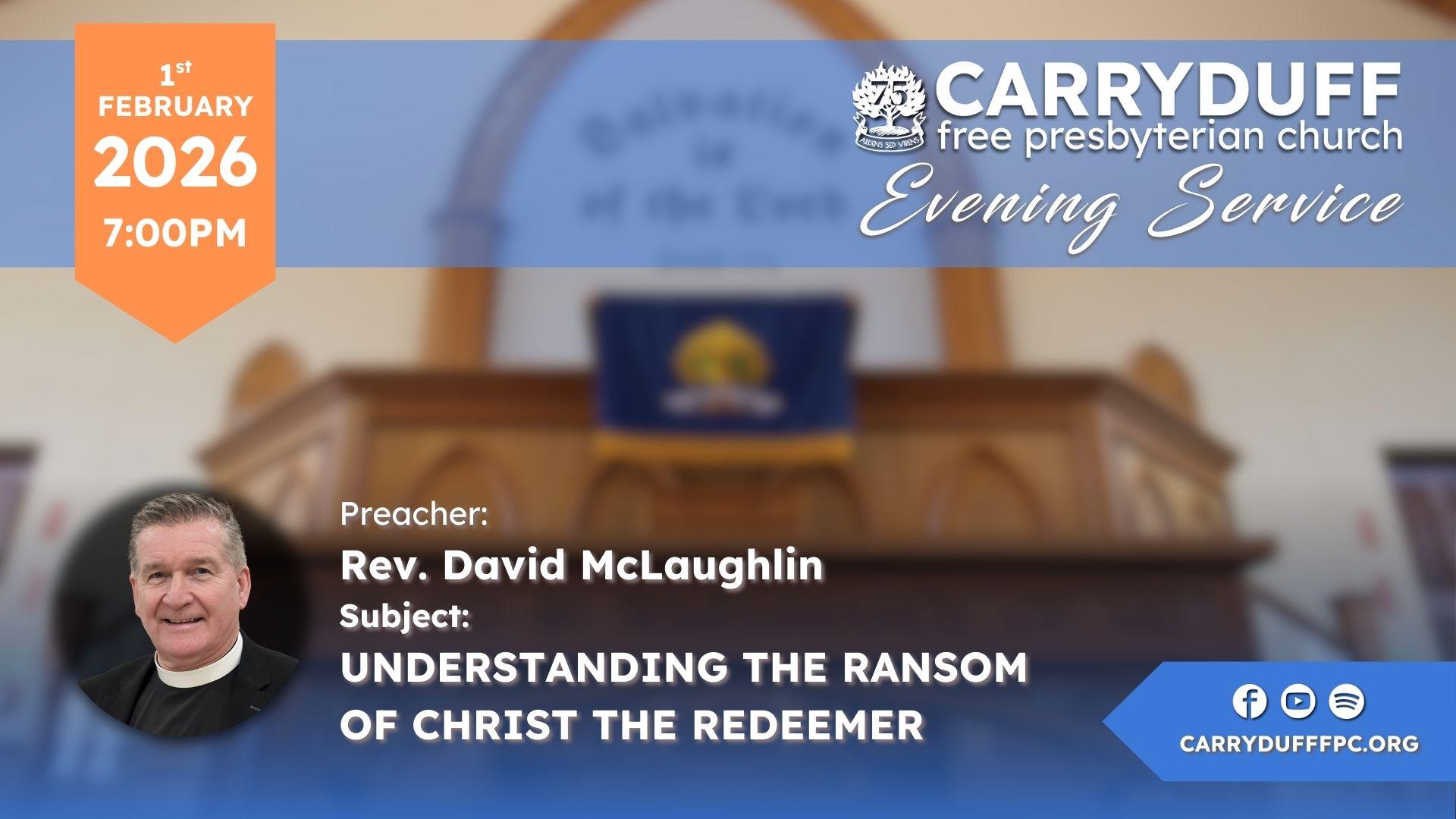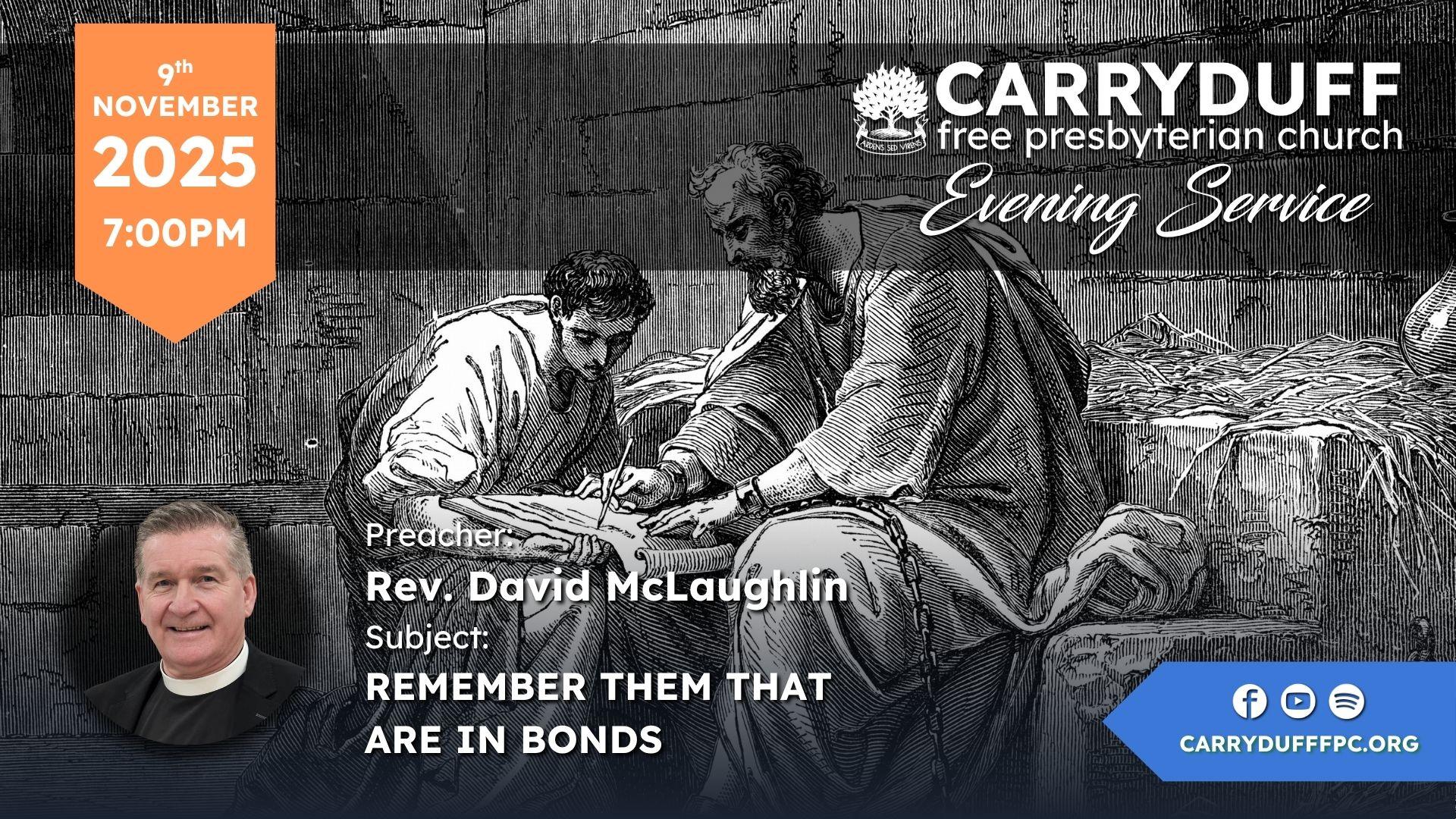Date: SUN 11:30am 14th September 2025
Preacher: Rev. Fred Greenfield
Bible Reference: Hebrews 2:9
But we see Jesus, who was made a little lower than the angels for the suffering of death, crowned with glory and honour; that he by the grace of God should taste death for every man.
Sermon Summary: Hebrews 2:1-9
The sermon, based on Hebrews 2:1-9, focuses on encouraging believers to remain steadfast in their faith amidst persecution and hardship by fixing their eyes on Jesus Christ. The preacher draws attention to the historical and ongoing suffering of Christians, referencing the assassination of prominent Christian Charlie Kirk in the United States and the global persecution of believers. The sermon is directed towards Hebrew Christians—Jewish converts facing significant opposition for their faith in Christ—and uses the text to exhort them to hold fast to the gospel message.
Key Points:
- Call to Heed the Gospel (Hebrews 2:1-3)
The sermon opens with an exhortation from Hebrews 2:1 to “give the more earnest heed” to the gospel message to avoid letting it “slip.” The preacher explains that the apostle Paul (presumed author in this context) warns the Hebrew Christians against drifting back to the “beggarly elements” of the world due to persecution. The reliability of the gospel is underscored by its divine origin—first spoken by Jesus, confirmed by His witnesses, and authenticated by God through signs, wonders, miracles, and gifts of the Holy Spirit (v. 3-4). The preacher contrasts the certainty of punishment for disregarding the law given through angels with the far greater consequence of neglecting the “great salvation” offered through Christ. - Christ’s Superiority and Humiliation (Hebrews 2:5-9)
The sermon highlights the superiority of Jesus over angels, drawing from Hebrews 1, where Christ is described as the Son of God, co-equal and co-eternal with the Father, appointed heir of all things, and creator of the world (Hebrews 1:2-3). Unlike angels, who are created beings, Jesus is worthy of worship (Hebrews 1:6). Yet, in His incarnation, He was “made a little lower than the angels” (Hebrews 2:9), taking on human form to suffer and die. The preacher quotes Charles Spurgeon to illustrate the profound humility of Christ’s incarnation, likening it to a man becoming a “worm of the dust.” This act of humility culminated in Jesus’ death on the cross, where He bore humanity’s sins, despite being sinless Himself. - The Purpose of Christ’s Suffering (Hebrews 2:9)
The focal verse, Hebrews 2:9, declares that Jesus, “by the grace of God, should taste death for every man.” The preacher emphasizes the redemptive power of Christ’s death, which paid the penalty for sin once and for all. Unlike the Old Testament sacrifices, which could not remove guilt or cleanse the conscience, Christ’s sacrifice is complete and effective. The sermon references the tearing of the temple veil at Jesus’ death, symbolizing direct access to God through Christ, the true Testator and Mediator. The preacher uses hymns to reinforce this, such as “Once and for all, O sinner, receive it” and “Not all the blood of beasts on Jewish altars slain could give the guilty conscience peace.” - Encouragement Through Christ’s Example
The sermon urges believers to “see Jesus” in His incarnation, suffering, resurrection, and exaltation to find strength in their trials. Jesus’ obedience, even unto death on the cross (Philippians 2:5-8), serves as a model for believers facing persecution. The preacher notes that some Hebrew Christians had not yet “resisted unto blood” (Hebrews 12:4), but others had been martyred. By looking to Jesus, who endured the cross and is now “crowned with glory and honour” (Hebrews 2:9), believers can find encouragement to persevere. The sermon cites examples like the Apostle John, who endured exile on Patmos, and Isaiah’s vision of the Lord “high and lifted up” to inspire steadfastness. - Christ’s Exaltation and Universal Lordship
The sermon concludes by emphasizing Christ’s resurrection and exaltation, affirming that He triumphed over sin, death, hell, and the grave. Unlike the founders of other religions (e.g., Buddha, Muhammad, Confucius), who remain dead, Jesus is alive forevermore. The preacher declares that every knee will bow to Jesus, including kings, queens, dictators, and religious leaders, as He is exalted above all (Philippians 2:9-11). This assurance of Christ’s omnipotence and ultimate victory encourages believers not to be disheartened but to press on towards the “high calling” in Christ (Philippians 3:14).
Application and Tone:
The sermon is both doctrinal and pastoral, blending theological exposition with heartfelt encouragement. It uses vivid imagery, hymns, and scriptural cross-references to inspire believers to remain faithful despite adversity. The tone is earnest and uplifting, urging the congregation to fix their eyes on Jesus as the source of salvation, strength, and hope. The preacher repeatedly calls believers to “see Jesus” in His humility, sacrifice, and triumph, reinforcing the centrality of Christ in the Christian life.
Conclusion:
The sermon concludes with a prayer that believers would afresh “see Jesus” through the Scriptures, follow Him faithfully, and draw strength from His victory. It underscores the uniqueness of Christ as the only Saviour and Mediator, encouraging perseverance in faith amidst persecution, with the assurance of His eternal reign and coming glory.
Subscribe to the podcast here:
Spotify Podcasts | Apple Podcasts | Pocket Casts
Email | RSS | more information here








